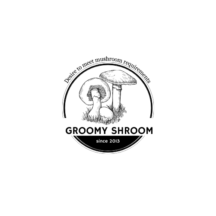Magic Mushrooms for Depression and Anxiety
Exploring the Potential of Magic Mushrooms for Depression and Anxiety
Introduction
In recent years, there has been a growing interest in alternative treatments for depression and anxiety. Among these alternatives, magic mushrooms, scientifically known as Psilocybin mushrooms, have garnered significant attention. These fungi contain psychoactive compounds like Psilocybin and Psilocin, which have the potential to offer relief from the burden of mental health disorders. In this article, we will delve into the science behind magic mushrooms, their potential benefits, and the legal and ethical considerations surrounding their use in treating depression and anxiety.
The Science Behind Magic Mushrooms
What are magic mushrooms?
Magic mushrooms, also known as shrooms, belong to various species and contain psychoactive compounds, with Psilocybin and Psilocin being the most prominent. These compounds are responsible for the mind-altering effects associated with consuming magic mushrooms.
How do magic mushrooms affect the brain?
When ingested, Psilocybin is converted to Psilocin in the body, which then interacts with serotonin receptors in the brain. This interaction results in altered states of consciousness, often described as mystical or transcendent experiences.
History of magic mushroom use
The use of magic mushrooms isn’t a recent phenomenon. Indigenous and ancient cultures, such as the Aztecs and the Mayans, have a long history of incorporating these fungi into religious and spiritual practices. In modern times, there has been a resurgence of interest in magic mushrooms as potential therapeutic tools.
The Clinical Perspective
Recent research on psilocybin therapy
Recent clinical trials and studies have shown promising results in the use of Psilocybin therapy for treating depression and anxiety. Some studies have reported significant improvements in mood and reductions in anxiety symptoms after controlled administration of Psilocybin.
Mechanisms of action in treating depression and anxiety
The exact mechanisms of how Psilocybin helps alleviate depression and anxiety are still being studied. However, it’s believed that the compound’s ability to reset neural pathways and promote introspection may contribute to its therapeutic effects.
Safety and dosing considerations
While Psilocybin therapy shows promise, it’s not without risks. Potential risks include adverse reactions, psychological distress, and the risk of a “bad trip.” Therefore, medical supervision and careful dosing are essential to mitigate these risks.
Personal Stories and Anecdotal Evidence
To gain insight into the real-world experiences of individuals using magic mushrooms to manage depression and anxiety, we interviewed several individuals who have embarked on this journey. Their stories vary, with some reporting profound positive changes in their mental health, while others have encountered challenges.
Sharing personal experiences can be a double-edged sword. While it can provide hope and inspiration, it’s important to remember that everyone’s response to Psilocybin therapy is unique. What works for one person may not work for another.
Legal and Ethical Considerations
Current legal status of magic mushrooms
The legal status of magic mushrooms varies widely around the world. In some places, they are classified as controlled substances, while others have decriminalized or legalized their use. Stay informed about the laws in your region before considering Psilocybin therapy.
Ethical considerations
Responsible use of magic mushrooms is paramount. Ensuring a safe and supportive environment, as well as having access to mental health professionals during the experience, is crucial. Additionally, it’s essential to respect the cultural and historical significance of these substances.
The Future of Magic Mushroom Therapy
As research into the therapeutic potential of Psilocybin continues, there is optimism for its integration into mainstream mental health care. However, several challenges, including stigma and the standardization of treatment protocols, must be addressed for this potential to be fully realized.
